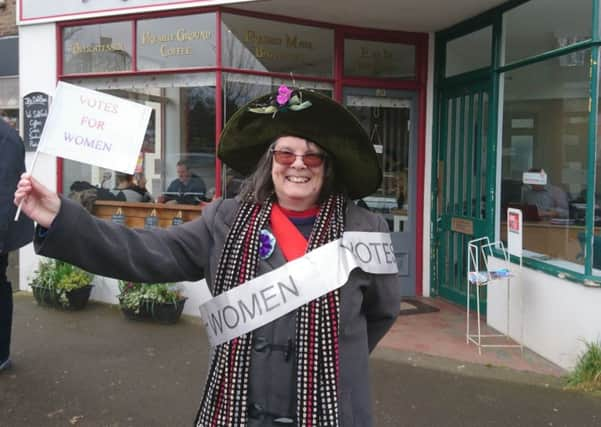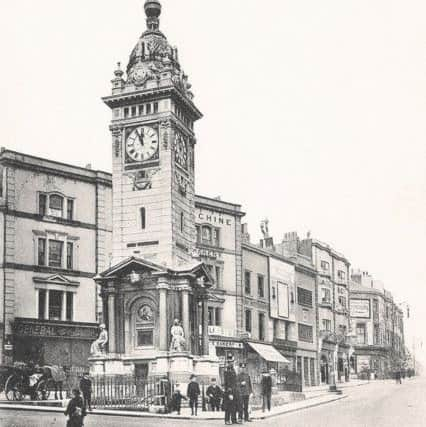Calls for blue plaque for city suffragettes


In this centenary year of some women gaining the vote, Green councillors are calling on the council to back the campaign for a blue plaque outside the former offices of the Women’s Social and Political Union, (WSPU) near the Clock Tower in Brighton.
Cllr Phélim Mac Cafferty, as convener of the Greens, has written to the policy, resources and growth committee, reminding the council of the ‘many often unrecognised actions that women in Brighton and Hove took to secure equal representation’.
Advertisement
Hide AdAdvertisement
Hide AdThe letter calls on councillors to ‘honour their fight, and ensure it is recognised for years to come’.


Campaigners hope he may be pushing at an open door.
Last week Conservative councillor Carol Theobald, who sits on the blue plaque committee, joined Elizabeth Dwiar and several other women in a ‘flash mob’ singing suffragette and suffragist songs.
As for Labour, Cllr Alan Robins, chair of the economic development and culture committee, said “The Labour administration would be fully behind this and would be interested in future development.”
The suffragettes were active in Brighton. In May 1907 Christabel Pankhurst told a packed meeting in the Dome: “The Suffragettes have their designs on Brighton.”
Advertisement
Hide AdAdvertisement
Hide AdAnd so they did. From 1908 they had their own Brighton banner (now held in Manchester People’s History Museum).
They met in local halls until a permanent office was opened in 1909 at 8/9 The Quadrant.
Organiser of the branch was Mary Clarke, younger sister of Emmeline Pankhurst.
She stayed at Minnie Turner’s Seaview Hotel in Victoria Road, which offered respite for suffragettes recovering from beatings and forcible feeding.
Advertisement
Hide AdAdvertisement
Hide AdMary Clarke died on Christmas Day 2010, two days after being released from prison, where she had been force fed.
Prior to her arrest she had been present at the notorious Black Friday, when many suffragettes were beaten.
The matter is set to be discussed at the council’s policy, resources and growth committee tonight (March 29).
To find out more about the campaign, and donate towards the blue plaque, visit: www.justgiving.com/crowdfunding/elizabeth-dwiar-1